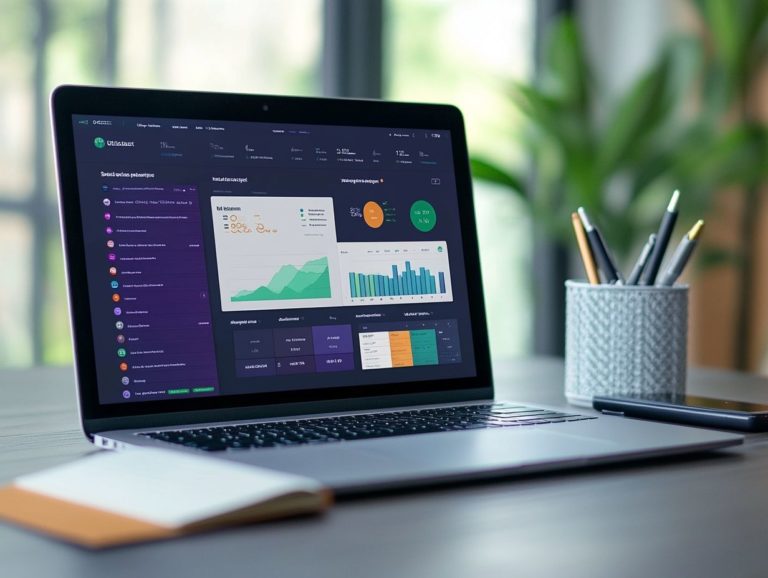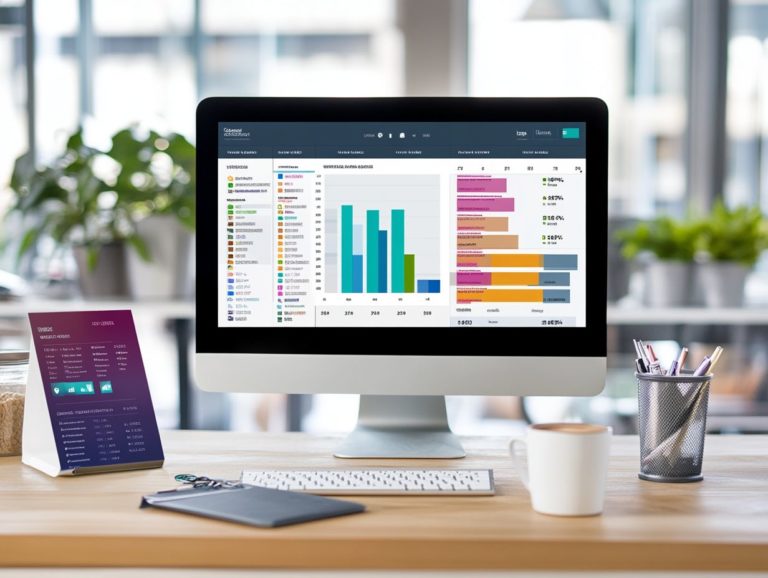Key Features to Compare in CRM Software
In today s fast-paced business landscape, grasping the nuances of customer relationships is paramount. CRM software stands as an indispensable tool, empowering organizations to manage interactions, streamline processes, and elevate customer satisfaction to new heights.
This article delves into the importance of CRM software, highlighting its key features such as contact management, sales tools, and analytics. You will also find the essential factors to consider when choosing the right solution for your needs.
Whether you represent a small business or a large enterprise, this guide will empower you with the insights necessary to make an informed decision.
Contents
- Key Takeaways:
- Understanding CRM Software
- Key Features to Look for in CRM Software
- Factors to Consider When Choosing CRM Software
- Frequently Asked Questions
- What are the key features to compare in CRM software?
- How do contact management features differ among CRM software?
- What types of sales and marketing automation features should be compared?
- How can customization and integration capabilities impact CRM software?
- How important is data analysis and reporting in CRM software?
- What should be considered when evaluating the mobile compatibility of CRM software?
Key Takeaways:
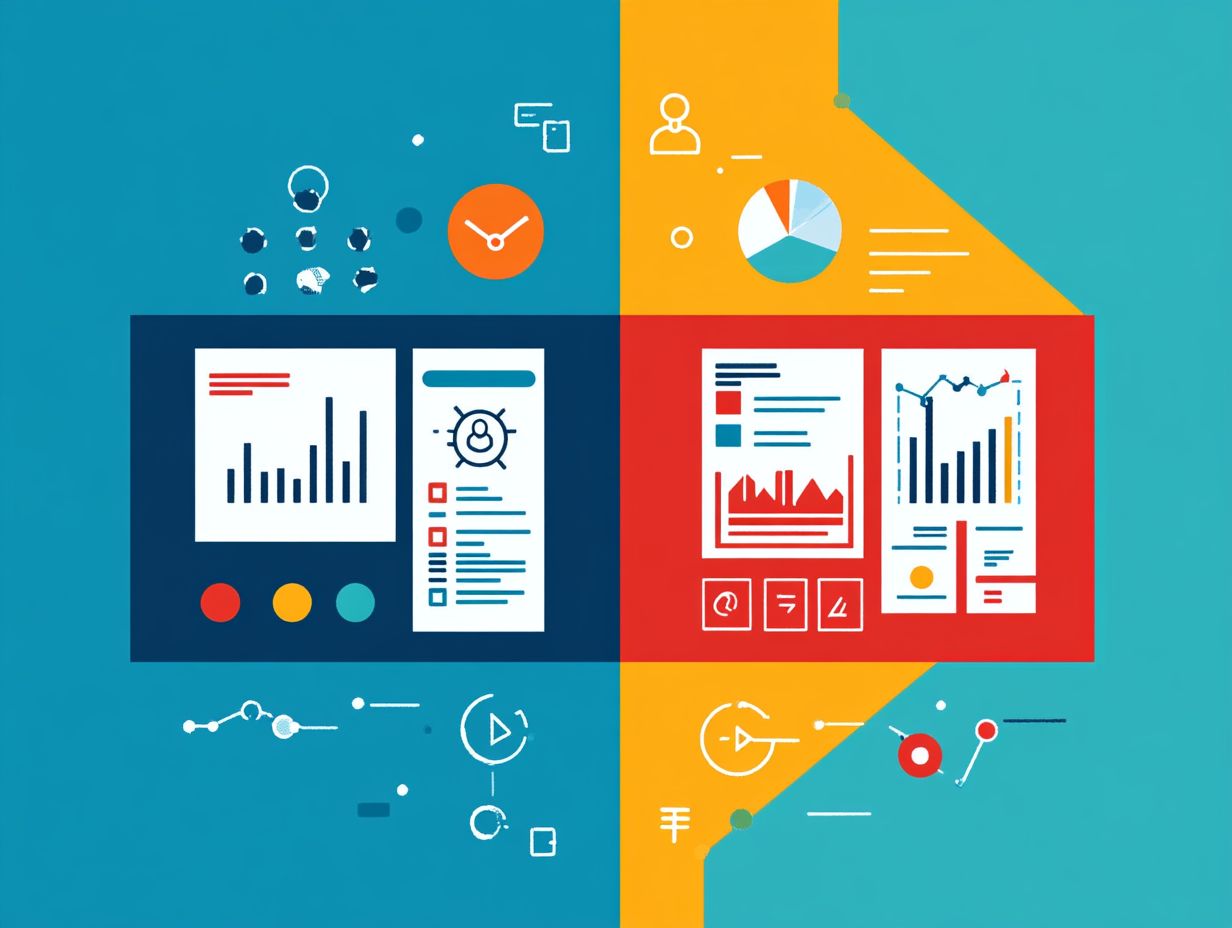
CRM software is a valuable tool for businesses to manage customer relationships, sales, and marketing. Important features to consider when evaluating enterprise CRM systems include:
- Contact management
- Sales and marketing tools
- Customer service
- Reporting and analytics
- Integration options
Other factors to prioritize when choosing CRM software are budget, scalability, user-friendliness, and customer reviews to ensure the best fit for your business needs.
Understanding CRM Software
Customer Relationship Management (CRM) helps businesses handle their customer interactions effectively. It gives you the power to forge robust relationships with clients through proficient account and contact management.
The right CRM solution refines your processes, elevates user satisfaction, and amplifies sales performance. Premier options, such as:
- Pipeliner CRM
- Zoho CRM
- Salesforce Sales Cloud
- HubSpot Sales Hub
offer a variety of functionalities tailored to meet the distinct needs of businesses across diverse sectors. Understanding these tools is essential for optimizing customer interactions and propelling your growth forward.
What is CRM Software and Why is it Important?
CRM software serves as your main tool for managing customer interactions. It allows you to gather valuable insights that drive sales performance and enhance your marketing automation strategies.
By consolidating data from various touchpoints, these systems give you the power to track communications and tailor your outreach efforts for maximum impact.
The true value of this technology lies in its ability to streamline processes, ensuring your teams can effortlessly share information, respond to customer inquiries swiftly, and deliver personalized experiences.
With effective CRM tools, you can dive into customer behavior, identify patterns or trends, and make informed decisions that enhance overall customer satisfaction and nurture long-lasting relationships.
Key Features to Look for in CRM Software
When choosing CRM software, it’s vital to focus on key features that can elevate your business operations. Consider looking for customizable options that cater to your unique needs, robust reporting capabilities that provide valuable insights, and mobile access for managing tasks on the go. For a comprehensive overview, check out the ultimate CRM comparison to weigh features against pricing.
A user-friendly interface is essential for ease of use, while seamless integrations with tools like Google Workspace and Mailchimp will help streamline workflows and enhance overall efficiency.
Contact Management
Effective contact management is the backbone of CRM software. It enables you to maintain organized records of customer interactions and gain valuable insights that elevate user satisfaction.
By leveraging features like segmentation, tracking, and a detailed interaction history, you can tailor your approach to meet the unique needs of each customer. This level of personalization strengthens relationships and ensures that your customers feel valued and understood.
For example, segmentation allows you to craft targeted marketing strategies, while tracking facilitates real-time analysis of customer behavior.
With a comprehensive interaction history at your fingertips, you empower your representatives to engage in meaningful conversations, ultimately driving improved satisfaction and loyalty.
When organizations like yours harness these capabilities effectively, they set the stage for long-term success in a competitive marketplace.
Sales and Marketing Tools
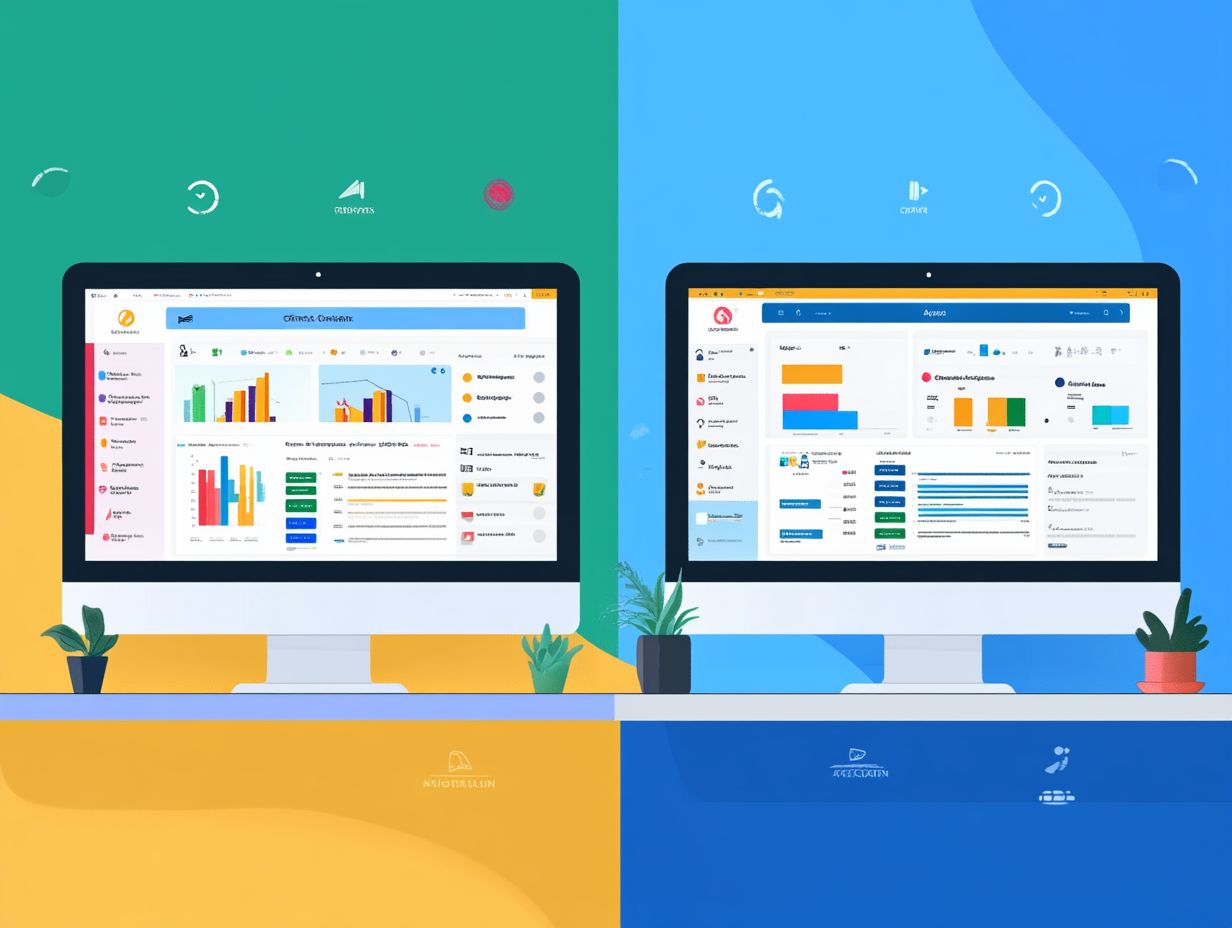
Sales and marketing tools integrated within Customer Relationship Management (CRM) software are essential for elevating your sales performance and automating marketing processes. Platforms like Salesforce and HubSpot stand out, offering comprehensive solutions that set the standard in the industry.
These tools streamline communications and foster collaboration between your sales and marketing teams. This ensures a cohesive strategy that propels revenue growth.
For example, Salesforce s Einstein Analytics equips your sales teams with insights to identify prospects more effectively. HubSpot s marketing automation capabilities allow you to create personalized campaigns that truly resonate with your target audiences.
By leveraging these features, you can track customer interactions and optimize your sales funnels. Ultimately, this enhances your conversion rates.
This synergy between sales and marketing, made possible by advanced CRM functionalities, revolutionizes how your company engages with customers. It also drives data-informed decisions.
Customer Service and Support
Customer service and support functionalities in CRM software are carefully designed to enhance customer satisfaction. This is achieved by automating support tasks and offering comprehensive reporting capabilities to monitor service performance.
These innovative features empower your support teams to manage customer inquiries with remarkable efficiency. This results in quicker response times and improved interaction quality.
Automation tools streamline repetitive tasks that often bog down productivity. This allows valuable resources to focus on more complex issues that truly require attention.
With in-depth reporting capabilities at your fingertips, you gain insights into customer behavior and service trends. This enables your teams to make data-driven decisions that elevate service quality even further.
By employing tracking tools for inquiries, your organization ensures that no query goes unnoticed. This fosters a reliable and responsive support environment that nurtures enduring customer relationships.
Reporting and Analytics
Robust reporting and analytics capabilities in CRM software empower you to make informed decisions. This is achieved through sales forecasting and insightful customer data analysis.
These tools allow you to track key performance indicators and identify trends. You can also measure the effectiveness of your sales strategies over time.
By harnessing data visualization and automated reporting features, you can quickly interpret complex datasets. This fosters better alignment between your sales teams and marketing initiatives.
The ability to analyze customer interactions and preferences enables you to craft tailored experiences. This enhances customer satisfaction and loyalty.
Ultimately, utilizing these comprehensive insights will lead to more accurate forecasting. This helps you allocate resources efficiently and stay ahead of the competition.
Integration and Customization Options
The ability to integrate various business tools and customize features in your CRM software is essential for crafting a user interface. This should align seamlessly with your organization’s workflow and enhance overall efficiency.
By facilitating smooth connectivity with other platforms such as email, marketing automation, and analytics tools, integrated CRM solutions dramatically cut down on manual data entry. This not only reduces errors but also boosts your productivity significantly.
Customization options empower you to tailor dashboards and reporting features to meet your specific needs. This allows for quicker access to critical information.
When your team engages with a system that mirrors their unique operational demands, they are far more likely to embrace the software. This results in higher user satisfaction.
Ultimately, the integration and personalization of these elements enrich user experiences. They also play a vital role in your organization s success by streamlining processes and driving positive outcomes.
Factors to Consider When Choosing CRM Software
When selecting CRM software, you must consider several critical factors that can significantly impact your choice. Start with your budget and pricing, as these will shape your options.
Assess the scalability of the software to ensure it can accommodate your future growth. User-friendliness is also essential; a system that’s easy to adopt will facilitate smoother integration within your team.
Finally, explore customer reviews, as they provide valuable insights into the software s reputation and performance.
Budget and Pricing
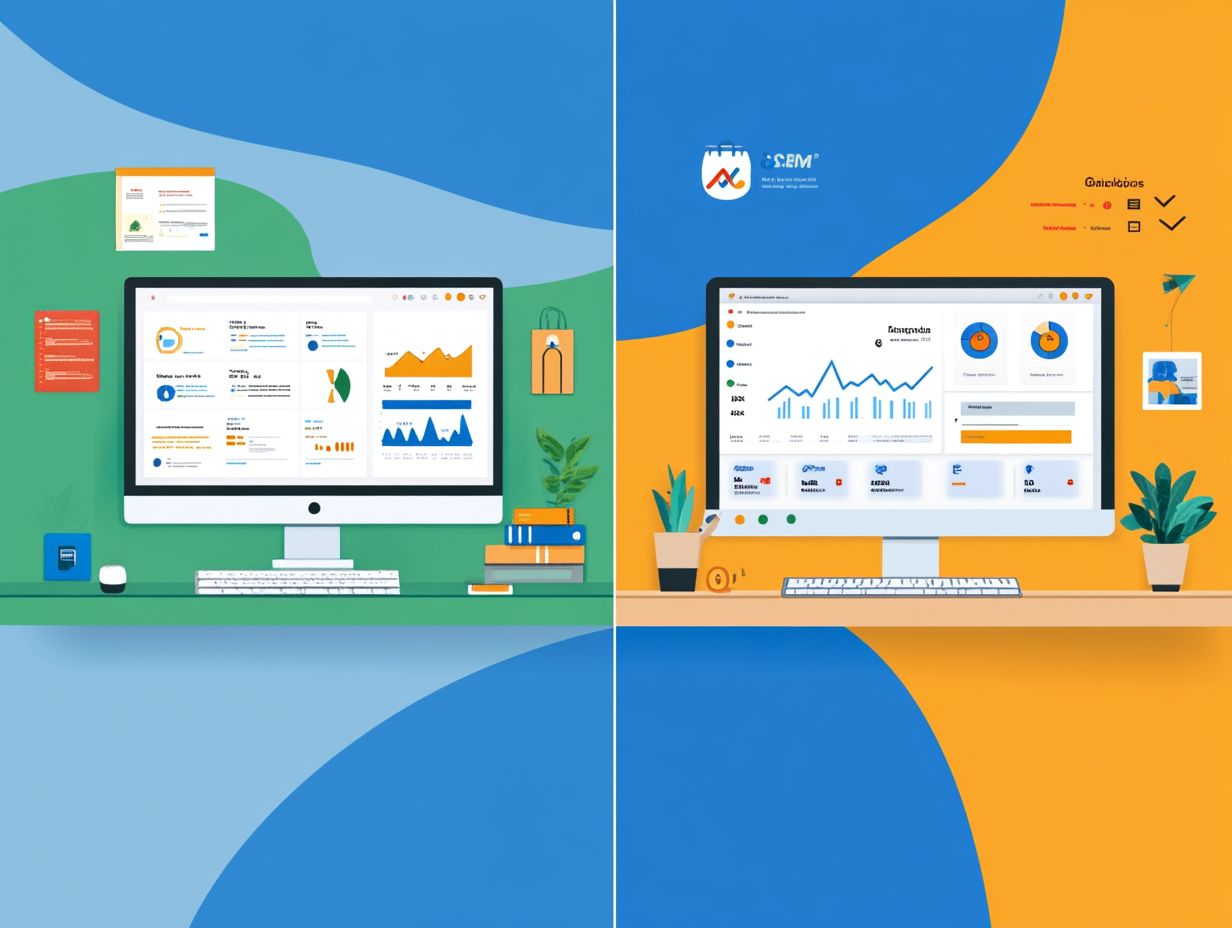
When evaluating CRM software, budget and pricing are crucial factors you can’t afford to overlook. They directly influence user satisfaction and the overall return on investment for your organization.
As you navigate the landscape of available pricing models, you will consider options like monthly subscriptions or tiered pricing.
Subscription-based models offer you flexibility, allowing you to pay monthly or annually based on your usage. This can be especially attractive if you’re a startup or a small business looking to manage costs effectively.
On the other hand, tiered pricing presents a variety of features across different price points. This gives you the ability to choose an option that aligns with your budget while still covering essential functionalities.
By understanding these variations, you empower yourself to make informed decisions that enhance user experience and align your financial strategies with your operational goals.
Scalability and Flexibility
Scalability and flexibility in CRM software are essential for accommodating your business growth. Customizable features can evolve with your organization s changing needs and enhance user satisfaction.
This dynamic capability is crucial in today s rapidly shifting market landscape, where new challenges and opportunities arise daily.
As your organization expands whether by entering new markets or diversifying product lines having a CRM platform that can seamlessly grow alongside you becomes imperative.
A well-designed CRM can adapt to increased data volumes, work with new tools, and support more complex workflows. This enables your teams to maintain efficiency and productivity.
With flexible solutions at your disposal, you can tailor functionalities based on your specific requirements. This results in a more personalized user experience that boosts employee engagement and improves customer interactions.
User-Friendliness and Training
User-friendliness is paramount when adopting CRM software. An intuitive design minimizes the learning curve, allowing you to swiftly improve your skills.
When CRM systems prioritize user experience, they greatly impact how smoothly you onboard and your overall satisfaction with daily tasks. If you feel at ease navigating the system, you re likely to engage more deeply with its features, resulting in a faster return on investment.
When your training materials match an intuitive interface, you ll find it much easier to retain information. This powerful combination of user-friendly design and effective training creates an environment where productivity can thrive, ultimately nurturing better customer relationships.
Customer Reviews and Reputation
Customer reviews and reputation significantly influence your decision-making process when selecting CRM software. They offer valuable insights into user satisfaction and the overall effectiveness of the solution.
These testimonials become a vital resource for you as a potential user, helping you assess whether a particular CRM will cater to your specific needs. Positive feedback can enhance trust and credibility in a software provider, motivating you to invest in their solutions.
Conversely, negative reviews may reveal potential pitfalls, prompting a more thorough exploration of features and support services. Ultimately, sifting through these impressions not only aids you in identifying the most suitable CRM software but also ensures that you make informed choices grounded in collective user experiences.
Frequently Asked Questions
What are the key features to compare in CRM software?
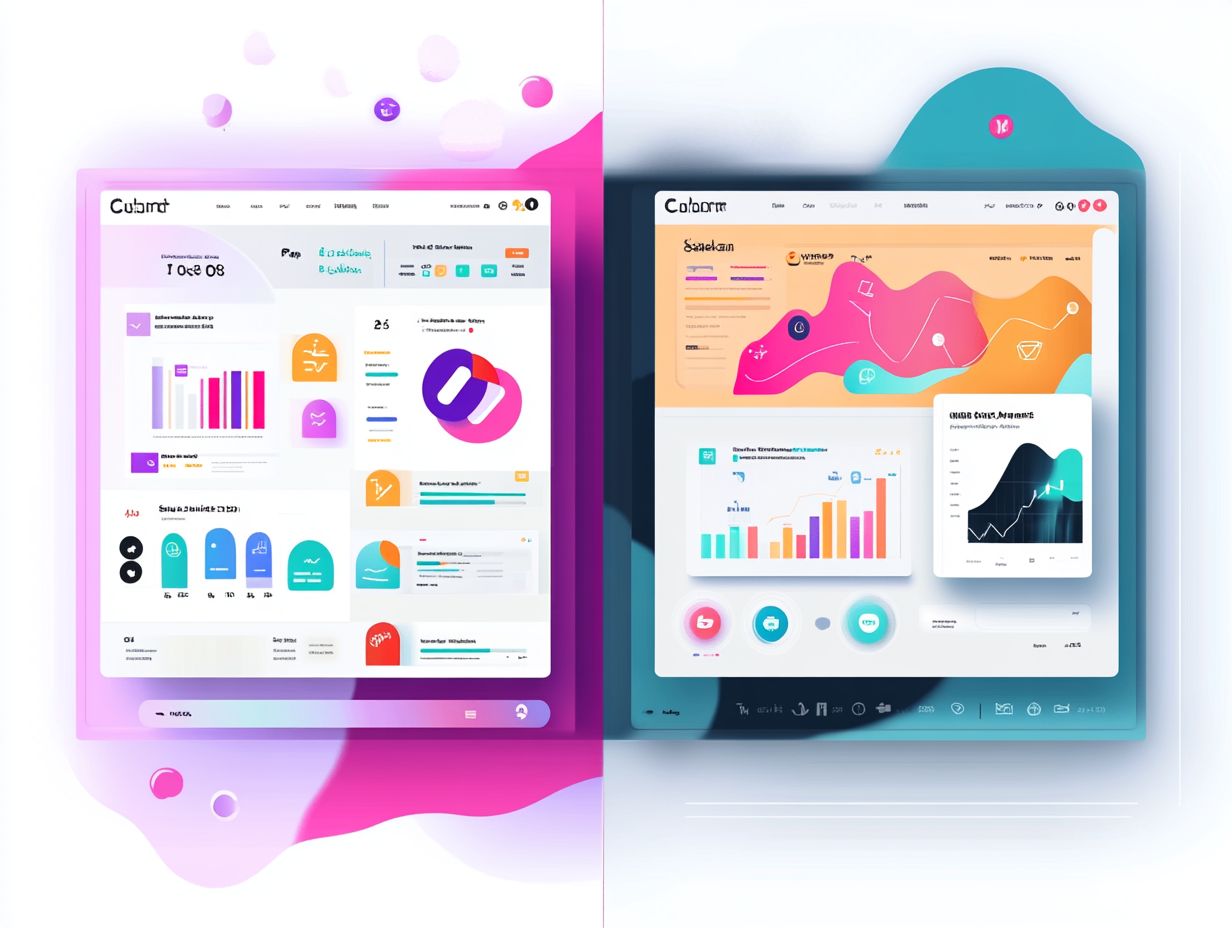
Key features to compare include contact management, sales automation, and customization options. Additionally, consider what to look for in a CRM, including data analysis, mobile compatibility, and security.
How do contact management features differ among CRM software?
Contact management features in CRM software can vary in terms of the number of contacts that can be stored, the ability to segment contacts, and the ease of adding and updating contact information.
What types of sales and marketing automation features should be compared?
When comparing CRM software, focus on key features. Look for lead management, email marketing, campaign management, and social media integration.
How can customization and integration capabilities impact CRM software?
Customizing and integrating CRM software can improve its functionality. Look for options to adjust workflows, dashboards, and data fields.
How important is data analysis and reporting in CRM software?
Data analysis and reporting in CRM software provide crucial insights into customer behavior. This helps businesses make smart and timely decisions!
What should be considered when evaluating the mobile compatibility of CRM software?
Mobile compatibility is vital for businesses with remote teams. Ensure the software offers mobile apps, offline access, and responsive design for seamless functionality.

